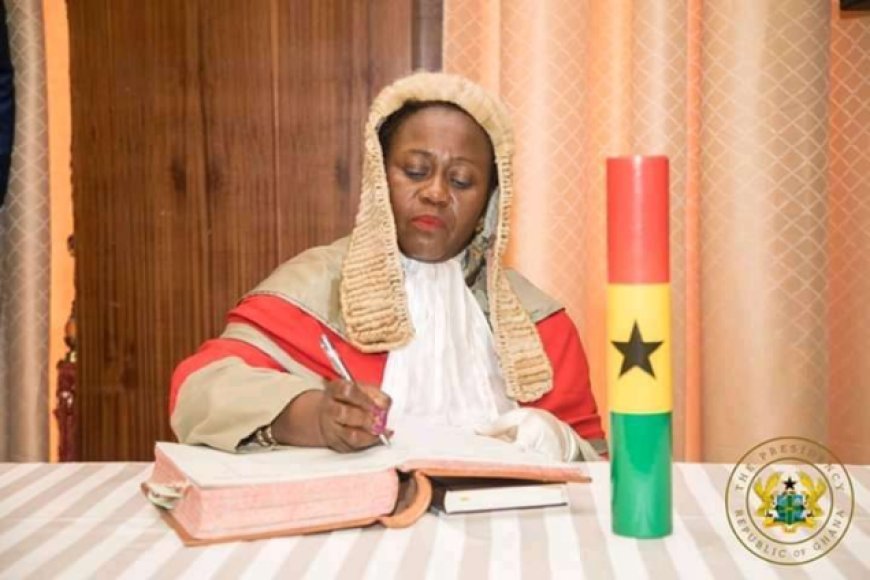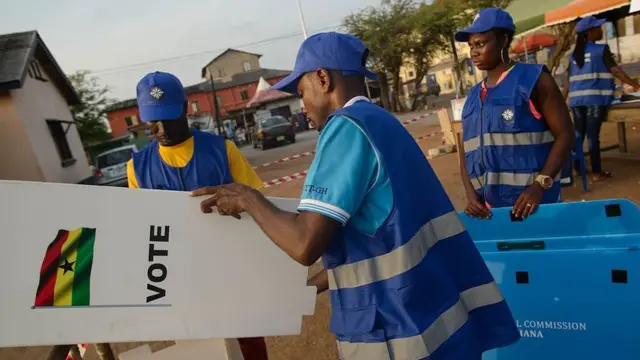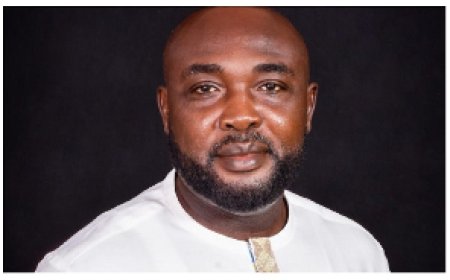Arthur Kobina Kennedy Writes: JUSTICE IN CHAOS, Poor Ghana!

Source: MyJoyOnline
Our Justice system cannot catch a break. Right in the middle of the case in which our Attorney General has coached a witness in the absence of the defendant’s lawyer and then refused to resign, the Chief Justice has rubbed salt into our collective national wound.
In a letter dated 30th June 2024, addressed to the President, her Ladyship, Justice Gertrude Torkornoo wrote, in part,” I write to respectfully REQUEST that the following judges be appointed to the Supreme Court of Ghana.” (Caps mine). Then followed 5 names of Justices, one of whom happens to be the judge presiding over the very controversial Ambulance case involving the AG.
One would ask, “So what?” It turns out that the process for appointing Supreme Court judges is very clear and simple. According to Article 144(2) of our 1992 constitution, “The other SC Justices shall be appointed by the President acting on the advice of the Judicial Council in consultation with the Council of State and with the approval of Parliament.” While the CJ is the Chair of the Judicial Council, her letter to the President does not mention the Judicial Council. Clearly, then, this is not a communication on behalf of the Judicial Council. What then, was her motive? What were her criteria for those selected? Judicial excellence? Temperament? Loyalty? Professor Kwaku Asare– Azar– has dealt brilliantly with the constitutional and legal questions raised by this issue.
Let me, therefore express my concern as an unlearned friend of the Judiciary and a “citizen, not a spectator”. America has a population of 330 million– ten times that of Ghana and only 9 Supreme Court justices while Ghana has 15! Adding the Torkornoo 5 will give us 20 which would be more than twice that of the US. For a country that is on bended knees to the World Bank begging for financial aid, for the 17th time, that defies prudence and commonsense.
Aside from these 2 cases, our Supreme Court and or CJs have done some damage to our pristine judicial reputation in the last few years. They helped the President remove EC officials on dubious grounds. Their handling of the last election petition and Assin election petition left a bitter taste in the mouths of many and they played Pontius Pilate while the President unconstitutionally retired Auditor General Domelovo.
This series of biased and partisan rulings has prompted dire warnings from National Security Minister Kan Dapaah and ex-President Mahama. It has not always been like this.
The history of our law and lawyers, serving as advocates, judges and activists has been glorious. In 1897 John Mensah Sarbah and Casely Hayford bravely led the Aborigines Rights Protection Society to successfully block the massive transfer of land to the British crown. In 1961, J.B. Danquah passionately argued re:Akoto and 7 others in a valiant effort to invalidate the 1958 Preventive Detention Act. In 1963, following the Kulungugu bomb trial, Justices Korsah, Akufo-Addo and Van Lare freed Crabbe and others and were dismissed by President Nkrumah.
In the 1978 Unigov Referendum, Justice I.K. Abban, the Electoral Commissioner, refused to announce cooked results and escaped over a wall, forcing the SMC to announce its own fraudulent results. That was the death of Unigov.
Finally, in 1982, following the murder of the “Martyrs of the rule of law” Sarkodee, Koranteng-Addow and Agyepong with Major Acquah, Justice Azu Crabbe and his SIB, issued their landmark report recommending indictments of Captain Tsikata and others in a performance that should inspire for ages to come.
Along the way, Obeng-Manu, Sam Okudzeto, Ala Adjetey and Nana Akufo-Addo (as a lawyer, not as President) amongst others, have made notable contributions. Today, lawyers as judges, advocates and activists, with few exceptions, are a pale imitation of their illustrious forebears. If the crown was taking our lands today, lawyers would be looking to get parcels, not stop it and whoever plays Justice Abban would be selling the Unigov referendum to the highest bidder–according to a wag on the street.
Our legal fraternity is no longer moved by patriotism, the rule of law and large principles. Men of law think of money, not morals– of cowardice, not courage. Even the illustrious and storied Ghana Bar Association has descended into a long and deafening silence! Today, only a few dare to stand up and speak up. Amongst these are Prof. Asare, Dean Atuguba, Taddeus Sory and Lardy Anyenini. They are repeatedly victimized and ostracized
As lawyer Atta Akyea once said and was sadly illustrated by Sir John/Gbesi's contempt defence,” The Supreme Court should not be a mercy chamber but a seat of Justice”. These are true words that should be inscribed on the walls of the Supreme Court and read before every session. Too often, the Supreme Court is aided by the General Legal in this gradual descent into indolence.
I urge the legal fraternity to recall that Roman history celebrates Cato, who committed suicide rather than submit to Caesar more than the 12 Caesars combined and the 2 dissenters in the 1857 Dred Scott case in the US are more honoured than Chief Justice Taney who authored the decision.
Finally, if all this has given you the impression that our Justice system or lawyers is/are our main problem, you are mistaken. What we are witnessing in our Judiciary is the visible part of a cabal– a cohort of powerful people, spread across our nation, from the Judiciary, through Parliament and the Presidency and the media and traditional and religious bodies, who have forgotten the bitter lessons of June 4th, are motivated only by impunity and greed, are contemptuous of the masses and happily running this beautiful nation into the ground. They will not change unless they hear from us on the streets like in Kenya and at our voting booths. May God give all of us the strength to speak truth to power and to do right by Ghana.
























































